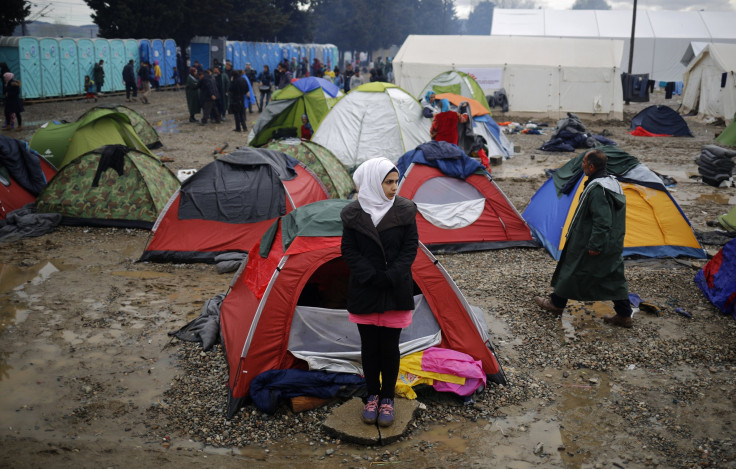Refugees 66% More Likely To Develop Schizophrenia, Psychotic Disorders Than Other Migrant Types

In 2015, there were some 60 million refugees and displaced persons around the world — the highest amount since World War II. With no end in sight for the crises in Syria and other countries, researchers have begun to study the long-term impact of mass migration, particularly the psychological impact on refugees, non-refugee migrants, and immigrants.
One of these studies, recently published in The BMJ, found refugees who seek asylum are at a much higher risk of developing mental health problems and even psychotic disorders. While past research has linked refugees to an increased risk of post-traumatic stress disorder (PTSD), depression, and anxiety, this is the first study to examine their risk for psychosis.
Researchers examined data on 1.3 million people in Sweden and kept track of mental illness diagnoses. They paid special attention to non-affective psychotic disorders, which aren’t related to mood or emotions — schizophrenia or delusional disorders, for example. (Bipolar disorder, on the other hand, is an affective psychosis.)
The researchers chose Sweden because it has approved more refugee applications than any other high-income country in the world; in 2011, 12 percent of the total immigrant population comprised refugees. They examined Swedish-born people as well as refugees and non-refugee migrants from the Middle East, north Africa, sub-Saharan Africa, Asia, and Eastern Europe. Among the millions of people included in the study, 3,704 had been diagnosed with a non-affective psychotic disorder, and refugees were 66 percent more likely to develop one than non-refugee migrants. They were also 3.6 times more likely to have a non-affective psychotic disorder than the Swedish-born population.
Psychosocial Adversity
“Refugee” is the term that defines migrants who seek asylum in nations other than their home country. These people may be at a higher risk of psychosis and other mental illnesses after surviving a range of psychosocial adversity during the different stages of their migration. Many refugees, for example, have experienced severe trauma or grief in a war-torn area; the shock of having to leave home and family members or friends behind; and the physical and mental toll of traveling by foot across great distances. Being homeless in refugee camps, isolated from the rest of society, and facing persecution or discrimination from others can further exacerbate the trauma. Even refugees who have resettled into new homes and jobs may suffer from the aftermath of their troubles, experiencing anxiety, panic disorders, depression, and suicidal thoughts.
The current study is one of the first to pinpoint refugees’ increased risk of psychosis, which can be a difficult diagnosis to overcome and treat. “Schizophrenia and other psychotic disorders lead to lifelong health and social adversities, culminating in a reduction in life expectancy of 10 to 25 years,” the authors wrote in the study. “Immigrants and their descendants are, on average, 2.5 times more likely to have a psychotic disorder than the majority ethnic group in a given setting.”
They note some of the possible factors that go into this increased incidence are trauma, abuse, socioeconomic disadvantage, and discrimination, not to mention the social isolation of being in a potentially xenophobic country. “If this is the case,” the authors wrote, “people granted refugee status may be particularly vulnerable to psychosis, given their increased likelihood of having experienced conflict, persecution, violence, or other forms of psychosocial adversity.”
There’s currently no manageable system in place to address the mental health needs of the vast number of refugees pouring into European and other Middle Eastern countries. The researchers concluded that their study highlights “the need to take the early signs and symptoms of psychosis into account in refugee populations, as part of any clinical mental health service responses to the current global humanitarian crises.”
Source: Hollander A, Dal H, Lewis G, Magnusson C, Kirkbride J, Dalman C. Refugee migration and risk of schizophrenia and other non-affective psychoses: cohort study of 1.3 million people in Sweden. The BMJ . 2016.



























